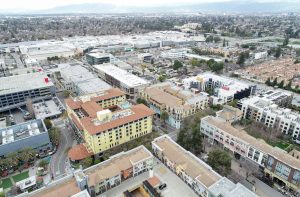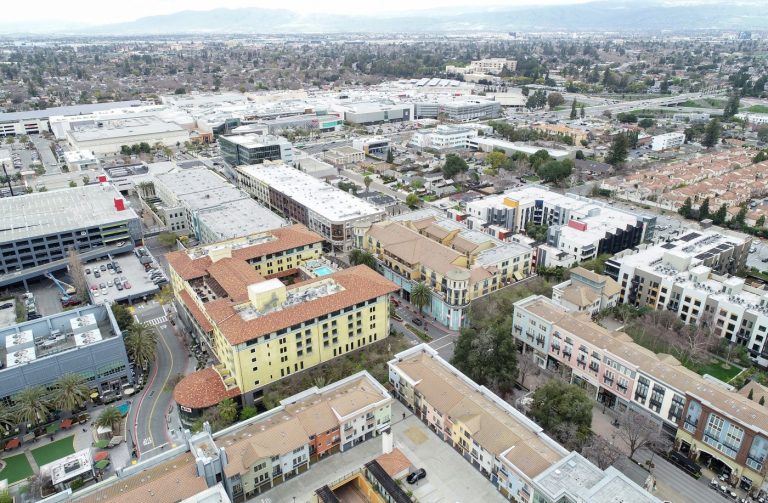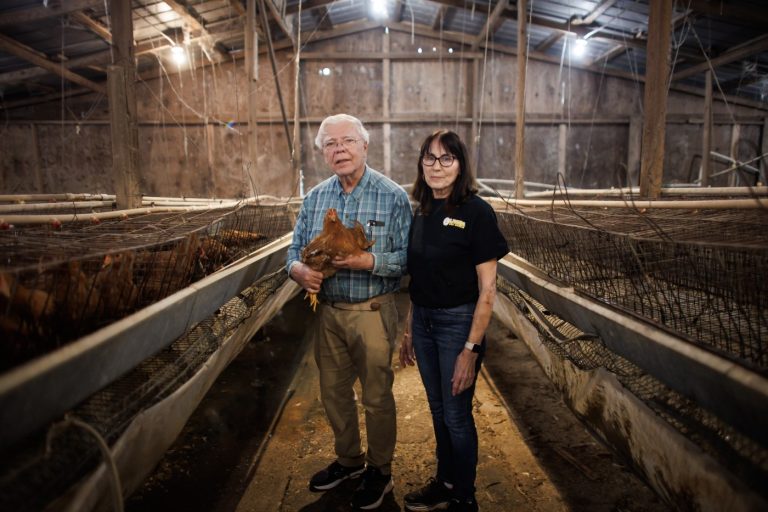California gas prices have been sliding lower over the past three months, a reflection of falling oil refinery costs and a new state price gouging law.
Gas prices still remain the highest in the country, but have dropped 78 cents per gallon since mid-April on average, according to the California Energy Commission, the state’s primary energy policy and planning agency.
The average price for a gallon of regular gasoline in California was $4.64 on Friday while Golden State drivers were paying $5.42 at the pump back in April, according to AAA. Gas prices in most parts of the Bay Area are within a few cents of the state average. The national average Thursday was $3.48 a gallon, according to AAA.
Prices “have been getting better,” said Elora Huerta, who was gassing up her Toyota RAV4 at a Chevron station in Danville Thursday. “I’m not filling up today though. I save that for my cheaper gas stations.”
AAA spokesperson John Treanor said lower gas prices may have contributed to the record travel the agency recorded over Independence Day. Memorial Day weekend was also a busy travel time, with the highest number of travelers seen in almost 20 years, Treanor said.
“It’s already been a very busy summer season,’’ he said.
The price drop is partly driven by lower costs and profits for oil industry refining, distribution and marketing. In April, the industry’s share of the price of a gallon of gas was $1.66. As of mid-July, it was $1.04, more in line with historical and current national trends.
While Andrew Gross, a spokesperson for AAA, said gas prices in some areas of the country are down because oil prices have fallen lately, energy officials say a major factor contributing to the relief at the pump here is the California Gas Price Gouging and Transparency Law Gov. Gavin Newsom signed last year.
The law aims to protect Californians from gas price gouging by creating an independent watchdog to root out potential gouging and authorizing regulators to penalize the oil industry for wrongdoings. A rule to establish a financial penalty on price gouging has yet to be put in place, but consumer advocates say the new law is still making an impact.
“The deterrent effect of California’s landmark oil refiner accountability law is remarkable,” said Jamie Court, president of Consumer Watchdog, a nonprofit taxpayer and consumer watchdog group. “Profit margins for the oil refiners are falling and prices at the pump are coming more in line with national gasoline prices.”
State energy officials say the law lets them better understand supply, demand and price trends in the petroleum market because of new data and transparency tools.
Oil representatives have been steadfast in their opposition to the law and spoken out against penalties and caps on oil companies in California.
“The extra information that the CEC is now collecting from our industry just backs up the fact that gas prices are driven by market forces like supply and demand,” said Kevin Slagle, a spokesperson for the Western States Petroleum Association, representing all major refiners and oil companies in California.
The law comes just months after some of the highest gasoline prices ever recorded in California in late 2022. During the fall, the average gas price reached a record high of nearly $6.50 per gallon. In some areas, prices were even higher, with a station in Mendocino approaching $10 per gallon and one station in San Bernardino County reaching $8.35 a gallon, according to Gasbuddy.com.
There are several reasons gas is more expensive in California, including the fact that state environmental fees and taxes add about 70 cents more per gallon to gasoline than in the average U.S. state, according to the U.S. Energy Information Administration, which collects, analyzes, and disseminates independent and impartial energy information.
Fuel price sign at a Chevron gas station on Thursday, Aug. 1, 2024, in Danville, Calif. Gasoline prices have been declining across the Bay Area in recent months. (Aric Crabb/Bay Area News Group)
The price gouging law authorizes the energy commission to set a maximum gross gasoline refining margin and a penalty for refiners that exceed it. It also helps the state understand and respond to gasoline price spikes and includes transparency and oversight measures to increase accountability of the petroleum industry.
The Division of Petroleum Market Oversight, an independent division within the commission, is responsible for oversight and investigations.
“While these trends are positive, we remain vigilant,” said division Director Tai Milder in a statement.
Related Articles
How will Chevron’s move to Texas affect the East Bay?
Cupertino gas station accused of diesel mix-up; repair costs up to $15,000 reported
Pace of Bay Area inflation eases a bit — yet electricity costs still soar
Two companies agree to pay $50 million over allegations they manipulated California gas prices
Walters: What will happen to gas prices if California shifts away from fossil fuels?
As part of the state’s larger effort to hold the oil industry accountable for unfair practices that lead to significant price jumps, California Attorney General Rob Bonta recently announced a $50 million settlement with two gas trading companies.
The settlement resolves allegations brought by the California Department of Justice in a May 2020 lawsuit. The lawsuit claims the companies took advantage of a market disruption following a 2015 explosion at a gasoline refinery in Southern California “to engage in a scheme to drive up gas prices for their own profit,” Bonta said in a statement.
These alleged actions illegally suppressed competition within the gasoline market and forced California drivers to pay more for gasoline, Bonta said in a statement.
Still, not all drivers have registered the price drop in gasoline.
“I would have noticed if they went up,” Jeannine Carlberg said while filling up her Volvo at the same Chevron station in Danville Thursday.
Jeannine Carlberg fills up her vehicle with fuel at a Chevron gas station on Thursday, Aug. 1, 2024, in Danville, Calif. Gasoline prices have been declining across the Bay Area in recent months. (Aric Crabb/Bay Area News Group)












